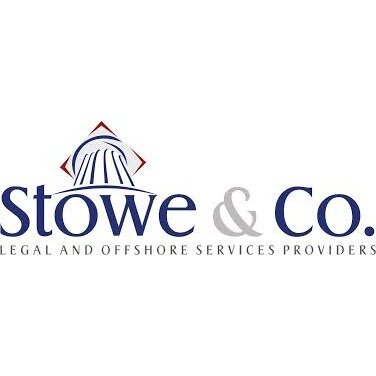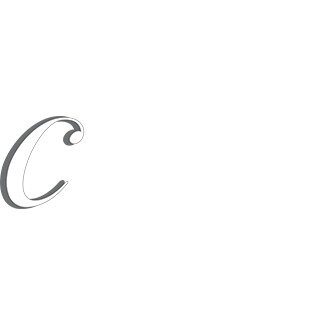Best Renewable & Alternative Energy Lawyers in Dominica
Share your needs with us, get contacted by law firms.
Free. Takes 2 min.
Or refine your search by selecting a city:
List of the best lawyers in Dominica
About Renewable & Alternative Energy Law in Dominica
Renewable and alternative energy is an increasingly important part of Dominica's commitment to sustainable development and climate resilience. The island is well-known for its focus on clean energy, particularly geothermal, hydroelectric, and solar power. Renewable and alternative energy law in Dominica comprises the legal frameworks, regulations, and policies that govern the production, use, distribution, and promotion of clean energy sources. These laws are designed to encourage investment in green technologies, protect the environment, and help meet the country's energy needs sustainably.
Why You May Need a Lawyer
There are several situations where seeking legal advice is crucial for individuals or businesses involved in renewable and alternative energy in Dominica. Some of the most common scenarios include:
- Navigating the permit application process for renewable energy projects
- Meeting regulatory requirements and environmental standards
- Negotiating power purchase agreements or contracts with the national utility
- Securing government incentives, funding, or concessions for clean energy initiatives
- Handling disputes related to property, land use, and community consultation
- Intellectual property protection for innovative energy solutions
- Understanding compliance with electricity and energy sector acts
- Assisting with foreign investment and partnership arrangements
- Dealing with liability, insurance, and risk management for renewable energy operations
Having a lawyer with expertise in energy law can help you avoid legal pitfalls, maximize benefits, and ensure that your project or initiative operates within the boundaries of Dominica’s legal system.
Local Laws Overview
Dominica has taken significant legislative and regulatory steps toward developing its renewable energy resources. Here are some key aspects of local laws relevant to renewable and alternative energy:
- The Electricity Supply Act provides the legal framework for the generation, distribution, and sale of electricity, including rules for integrating renewables into the national grid.
- The Geothermal Resources Act governs exploration, development, and exploitation of geothermal resources. It sets out licensing procedures, royalty agreements, and environmental protection measures for geothermal projects.
- The Environmental Health Services Act outlines requirements for environmental impact assessments, which are mandatory for large energy projects.
- The Energy Policy of Dominica outlines government goals to increase the share of renewable energy in the national energy mix and facilitate private investment in clean energy technologies.
- There are special regulations and guidelines for land use, construction permits, and community consultation to ensure that projects respect local communities and ecosystems.
- Government incentives such as tax concessions, grants, and technical support are available to encourage renewable energy development.
These laws and policies work together to regulate the sector, protect the environment, and promote cleaner sources of electricity and energy independence.
Frequently Asked Questions
What types of renewable energy are most common in Dominica?
Dominica primarily utilizes geothermal, hydropower, and solar energy due to its natural geography and abundant resources.
Do I need a permit to install solar panels or other renewable energy equipment?
Yes, permits are generally required for installation, especially if the system will connect to the national grid or is part of a larger commercial project. It is important to consult with the relevant government authority before proceeding.
How does Dominica regulate the use of geothermal energy?
Geothermal energy is regulated under the Geothermal Resources Act, which requires licensing, environmental impact assessments, and ongoing compliance monitoring.
Are there incentives for investing in renewable energy?
Yes, the government offers incentives such as tax holidays, duty-free concessions, and grant opportunities for qualifying renewable energy projects.
What legal steps are needed to start a renewable energy business?
You will need to incorporate your business, apply for the necessary project permits, complete environmental assessments, and secure all relevant energy sector licenses.
Can I sell surplus electricity generated from my solar panels to the grid?
There are provisions for net metering and selling surplus electricity, but this process requires official approval and a connection agreement with the utility provider.
What are the environmental requirements for a renewable energy project?
Large projects must undergo an environmental impact assessment and receive approvals under the Environmental Health Services Act to ensure minimal ecological disruption.
Do foreign investors have the same legal rights as locals in renewable energy projects?
Foreign investors can participate in the sector but must comply with specific investment and licensing regulations. Some incentives may be subject to local ownership or partnership requirements.
What happens if there is a dispute with a neighbor or community about my project?
Legal disputes over land use or environmental impact should be addressed through negotiation, mediation, or the courts if necessary. A lawyer can help you navigate the process and protect your interests.
How do I keep up-to-date with changing energy laws and regulations?
Regularly consult with legal professionals, subscribe to industry publications, and check updates from government agencies involved in energy and environmental regulation.
Additional Resources
If you are seeking legal advice or more information about renewable and alternative energy in Dominica, the following resources and organizations can be useful:
- Ministry of Energy and Public Utilities - for official policies, permits, and regulations
- Geothermal Resources Development Unit - for geothermal project guidelines and resources
- Dominica Electricity Services Limited (DOMLEC) - for grid connection and net metering policies
- Invest Dominica Authority - for information on investment incentives and business support
- Ministry of Environment, Rural Modernization, Kalinago Upliftment and Constituency Empowerment - for environmental compliance requirements and assessments
- Bar Association of Dominica - for qualified lawyers specializing in energy and environmental law
- Caribbean Community (CARICOM) Energy Unit - for regional guidelines and best practices
Next Steps
If you believe you need legal assistance in the area of renewable or alternative energy, start by identifying your specific needs, such as project development, compliance, investment, or dispute resolution. Gather key project information and documentation. Consider reaching out to a lawyer with expertise in energy or environmental law in Dominica. Consult with the recommended governmental agencies for details on permits and incentives. A lawyer can help you interpret the laws, handle negotiations, prepare contracts, and represent you in dealings with authorities or in court if necessary. Taking these steps early will help ensure your project succeeds while remaining fully compliant with all relevant laws and regulations.
Lawzana helps you find the best lawyers and law firms in Dominica through a curated and pre-screened list of qualified legal professionals. Our platform offers rankings and detailed profiles of attorneys and law firms, allowing you to compare based on practice areas, including Renewable & Alternative Energy, experience, and client feedback.
Each profile includes a description of the firm's areas of practice, client reviews, team members and partners, year of establishment, spoken languages, office locations, contact information, social media presence, and any published articles or resources. Most firms on our platform speak English and are experienced in both local and international legal matters.
Get a quote from top-rated law firms in Dominica — quickly, securely, and without unnecessary hassle.
Disclaimer:
The information provided on this page is for general informational purposes only and does not constitute legal advice. While we strive to ensure the accuracy and relevance of the content, legal information may change over time, and interpretations of the law can vary. You should always consult with a qualified legal professional for advice specific to your situation.
We disclaim all liability for actions taken or not taken based on the content of this page. If you believe any information is incorrect or outdated, please contact us, and we will review and update it where appropriate.
Browse renewable & alternative energy law firms by city in Dominica
Refine your search by selecting a city.











